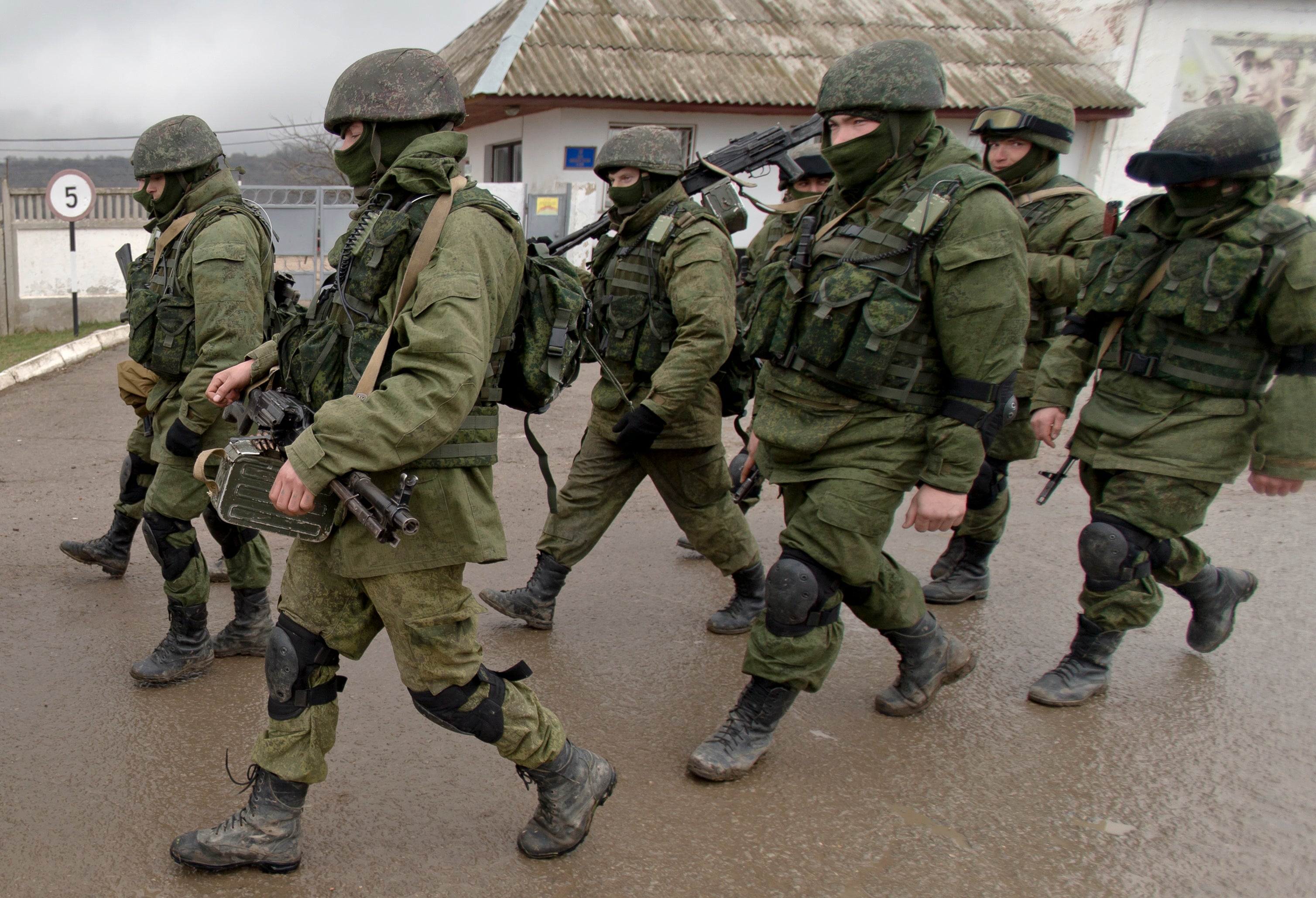Putin jails Russian soldiers for refusing to return to Ukraine
Russia is reportedly convicting close to 100 soldiers a week for refusing to fight

Your support helps us to tell the story
From reproductive rights to climate change to Big Tech, The Independent is on the ground when the story is developing. Whether it's investigating the financials of Elon Musk's pro-Trump PAC or producing our latest documentary, 'The A Word', which shines a light on the American women fighting for reproductive rights, we know how important it is to parse out the facts from the messaging.
At such a critical moment in US history, we need reporters on the ground. Your donation allows us to keep sending journalists to speak to both sides of the story.
The Independent is trusted by Americans across the entire political spectrum. And unlike many other quality news outlets, we choose not to lock Americans out of our reporting and analysis with paywalls. We believe quality journalism should be available to everyone, paid for by those who can afford it.
Your support makes all the difference.Two Russian soldiers have been jailed for refusing to return to the frontline in Ukraine, the UK Ministry of Defence (MoD) said.
In an intelligence update posted on Twitter, the ministry said two Russian soldiers were sentenced to serve at least two years in a penal colony by a military court for refusing to obey orders to return to the front in Ukraine.
It comes after Russian independent media outlet Mediazona reported that Russia was convicting close to 100 soldiers a week for refusing to fight.
The defence ministry predicted “there will be approximately 5,200 convictions a year for refusing to fight” if the trend continues.
The high rate of convictions demonstrates the “poor state of morale” and “reluctance” to fight in the Russian Army, the MoD said.
The update continued: “Refusal to fight likely reflects the lack of training, motivation and high stress situations Russian forces face along the entire Ukrainian frontline.”
However, the defence ministry said it is likely Russia mitigates losses in soldiers by “committing a mass of poorly trained soldiers to the frontline.”
“Since Russia’s September 2022 partial mobilisation, Russia has adapted its approach to warfare by utilising sheer mass for offensive and defensive operations,” the update explained.
In September 2022, Russian president Vladimir Putin announced a partial mobilisation of 300,000 military reservists for the war in Ukraine.
The call-up prompted hundreds of thousands of men to flee the country. Outbound flights were full and neighbouring countries received large influxes.

Soon afterwards, Mr Putin toughened up penalties for desertion and refusal to fight, making the offences punishable by up to 10 years in prison, or 15 years for voluntary surrender to enemy forces.
But first-time offenders may be exempted from criminal liability “if he took measures for his release, returned to his unit or place of service and did not commit other crimes while in captivity”, according to the new law.
Within weeks of the boost to Russian numbers, UK defence chiefs concluded many of the newly mobilised soldiers were poorly equipped, possibly with weapons in a “barely usable” condition.
Earlier this year, the MoD suggested Russian troops were using shovels for hand-to-hand combat in Ukraine because of an ammunition shortage.
In the latest development in Putins’s war in Ukraine, at least four of Russia’s military transport planes were damaged after Ukraine launched its biggest drone attack on Russian soil since the beginning of the invasion.
The Il-76 transport aircraft were damaged after drones hit an airport in the western Pskov region, located 660km north of the Ukrainian frontier and near the borders of Estonia and Latvia.



Join our commenting forum
Join thought-provoking conversations, follow other Independent readers and see their replies
Comments